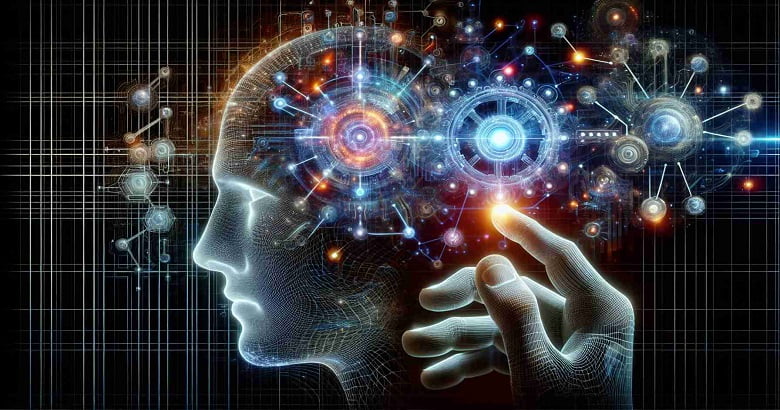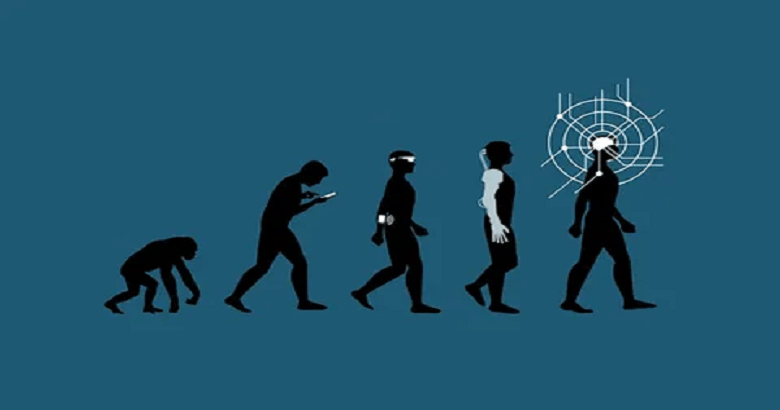Artificial Intelligence (AI) has evolved rapidly over the past few decades, transforming various industries and aspects of daily life. From voice assistants and recommendation systems to autonomous vehicles and advanced medical diagnostics, AI’s impact is profound and far-reaching. As we look ahead to the next decade, the question arises: What will AI look like in 10 years? This blog post explores potential advancements, applications, and implications of AI in the coming decade.
The Current State of AI
Before delving into the future, it’s essential to understand where AI stands today. Currently, AI technologies are primarily categorized into three types:
- Narrow AI: Also known as Weak AI, this type of AI is designed to perform specific tasks. Examples include virtual assistants like Siri and Alexa, recommendation algorithms on Netflix and Amazon, and image recognition systems.
- General AI: Also known as Strong AI or AGI (Artificial General Intelligence), this type of AI aims to perform any intellectual task that a human can. AGI remains largely theoretical and is a significant focus of future AI research.
- Superintelligent AI: This hypothetical AI surpasses human intelligence in all aspects, from creativity to problem-solving. While this concept is still speculative, it raises important ethical and existential questions.
Currently, most AI applications fall within the realm of Narrow AI, but significant strides are being made toward achieving AGI.
Advancements in AI Over the Next Decade

Enhanced Machine Learning and Deep Learning
Machine learning (ML) and deep learning (DL) are the driving forces behind many AI advancements. In the next decade, we can expect these technologies to become even more sophisticated. Improvements in algorithms, increased computational power, and larger datasets will enable AI systems to learn more efficiently and effectively.
- Automated Machine Learning (AutoML): AutoML aims to automate the process of designing and tuning ML models. This will make AI more accessible to non-experts and accelerate the development of AI applications.
- Federated Learning: This technique allows AI models to be trained across multiple decentralized devices without sharing raw data, enhancing privacy and security.
- Explainable AI (XAI): As AI systems become more complex, understanding their decision-making processes becomes crucial. XAI aims to make AI models more transparent and interpretable, fostering trust and accountability.
AI in Healthcare
AI has the potential to revolutionize healthcare, making it more personalized, efficient, and accurate. In the next decade, we can expect AI to play a more prominent role in various aspects of healthcare:
- Diagnostics: AI-powered diagnostic tools will become more accurate, aiding in the early detection of diseases like cancer, diabetes, and neurological disorders.
- Personalized Medicine: AI will enable the development of personalized treatment plans based on an individual’s genetic makeup, lifestyle, and medical history.
- Drug Discovery: AI will accelerate the drug discovery process by identifying potential drug candidates and predicting their effectiveness and side effects.
Autonomous Systems
Autonomous systems, such as self-driving cars and drones, will continue to advance in the next decade. These systems will become more reliable, efficient, and widespread, transforming transportation, logistics, and various other industries.
- Self-Driving Cars: Improved AI algorithms, better sensors, and enhanced infrastructure will make fully autonomous vehicles a reality. This will reduce traffic accidents, lower transportation costs, and increase accessibility.
- Drones: AI-powered drones will be used for various applications, including delivery services, agriculture, surveillance, and disaster response.
Natural Language Processing (NLP)
Natural Language Processing (NLP) technologies, which enable machines to understand and interact with human language, will see significant advancements. These improvements will enhance communication between humans and machines.
- Conversational AI: Virtual assistants and chatbots will become more sophisticated, providing more natural and context-aware interactions.
- Language Translation: AI-powered translation systems will become more accurate and nuanced, breaking down language barriers and facilitating global communication.
- Content Generation: AI will be able to create high-quality content, including articles, reports, and creative writing, with minimal human intervention.
AI in Education
AI will transform education by providing personalized learning experiences, automating administrative tasks, and offering new tools for teachers and students.
- Personalized Learning: AI-driven platforms will tailor educational content to individual learning styles and paces, improving student engagement and outcomes.
- Automated Grading: AI will assist teachers by automating grading and feedback, allowing them to focus more on instruction and mentorship.
- Virtual Classrooms: AI will enhance virtual learning environments, making them more interactive and immersive.
Ethical and Regulatory Considerations
As AI becomes more integrated into society, ethical and regulatory considerations will become increasingly important. Ensuring that AI is developed and deployed responsibly will be a major focus in the coming decade.
- Bias and Fairness: Efforts will be made to reduce bias in AI systems and ensure fairness in their decision-making processes.
- Privacy: Regulations will be implemented to protect individuals’ data privacy while allowing the benefits of AI to be realized.
- Accountability: Mechanisms will be established to hold AI developers and users accountable for the actions and decisions of AI systems.
The Impact of AI on Society

The advancements in AI over the next decade will have profound implications for society. While AI has the potential to bring about significant benefits, it also poses challenges that need to be addressed.
Economic Impact
AI will create new job opportunities and industries, but it will also disrupt existing ones. Automation will replace some jobs, especially those involving routine and repetitive tasks. However, AI will also create demand for new skills and roles, such as AI ethics specialists, data scientists, and AI trainers.
Social Impact
AI will change how we interact with technology and each other. Enhanced virtual assistants, personalized services, and improved healthcare will improve our quality of life. However, there are concerns about privacy, surveillance, and the digital divide. Ensuring that the benefits of AI are accessible to all will be crucial.
Ethical Impact
The ethical implications of AI are significant. From ensuring fairness and transparency to addressing the potential misuse of AI, ethical considerations will be at the forefront of AI development. Engaging diverse stakeholders, including ethicists, policymakers, and the public, will be essential in shaping the future of AI.
Final Thought
The next decade will be a transformative period for AI. With advancements in machine learning, healthcare, autonomous systems, natural language processing, and education, AI will become more integrated into our daily lives. However, as AI continues to evolve, it is crucial to address the ethical, social, and economic challenges it presents. By doing so, we can harness the potential of AI to create a better future for all.
The future of AI is filled with possibilities and uncertainties. As we look ahead, one thing is clear: AI will continue to shape and redefine our world in ways we can only begin to imagine.
Dive into the Future with “The Age of Cognivity”! Discover how advanced technologies are shaping our world. Get your copy today and explore the transformative power of Big Data, AI, and Automation with E.R. Anders.
Frequently Asked Questions
1. What advancements in AI can we expect in the next 10 years?
In the next decade, we can anticipate significant advancements in machine learning and deep learning, leading to more sophisticated AI applications. Expect improvements in automated machine learning (AutoML), federated learning, and explainable AI (XAI). These advancements will make AI more efficient, secure, and transparent.
2. How will AI impact the healthcare industry in the future?
AI will revolutionize healthcare by improving diagnostics, personalizing medicine, and accelerating drug discovery. AI-powered diagnostic tools will become more accurate, personalized treatment plans will be developed based on individual data, and the drug discovery process will be expedited, leading to more effective treatments.
3. What role will AI play in autonomous systems over the next decade?
AI will significantly advance autonomous systems, making self-driving cars and drones more reliable and widespread. Fully autonomous vehicles will reduce accidents and transportation costs, while AI-powered drones will be used for deliveries, agriculture, surveillance, and disaster response.
4. How will natural language processing (NLP) evolve in the next 10 years?
NLP technologies will become more sophisticated, enabling more natural and context-aware interactions with virtual assistants and chatbots. AI will also improve language translation accuracy and enable high-quality content generation with minimal human intervention, breaking down language barriers and enhancing global communication.
5. What ethical and regulatory considerations will be important for AI in the future?
As AI becomes more integrated into society, addressing bias, fairness, privacy, and accountability will be crucial. Efforts will focus on reducing bias in AI systems, protecting data privacy, and establishing mechanisms for accountability. Ethical considerations will be essential to ensure responsible AI development and deployment.

